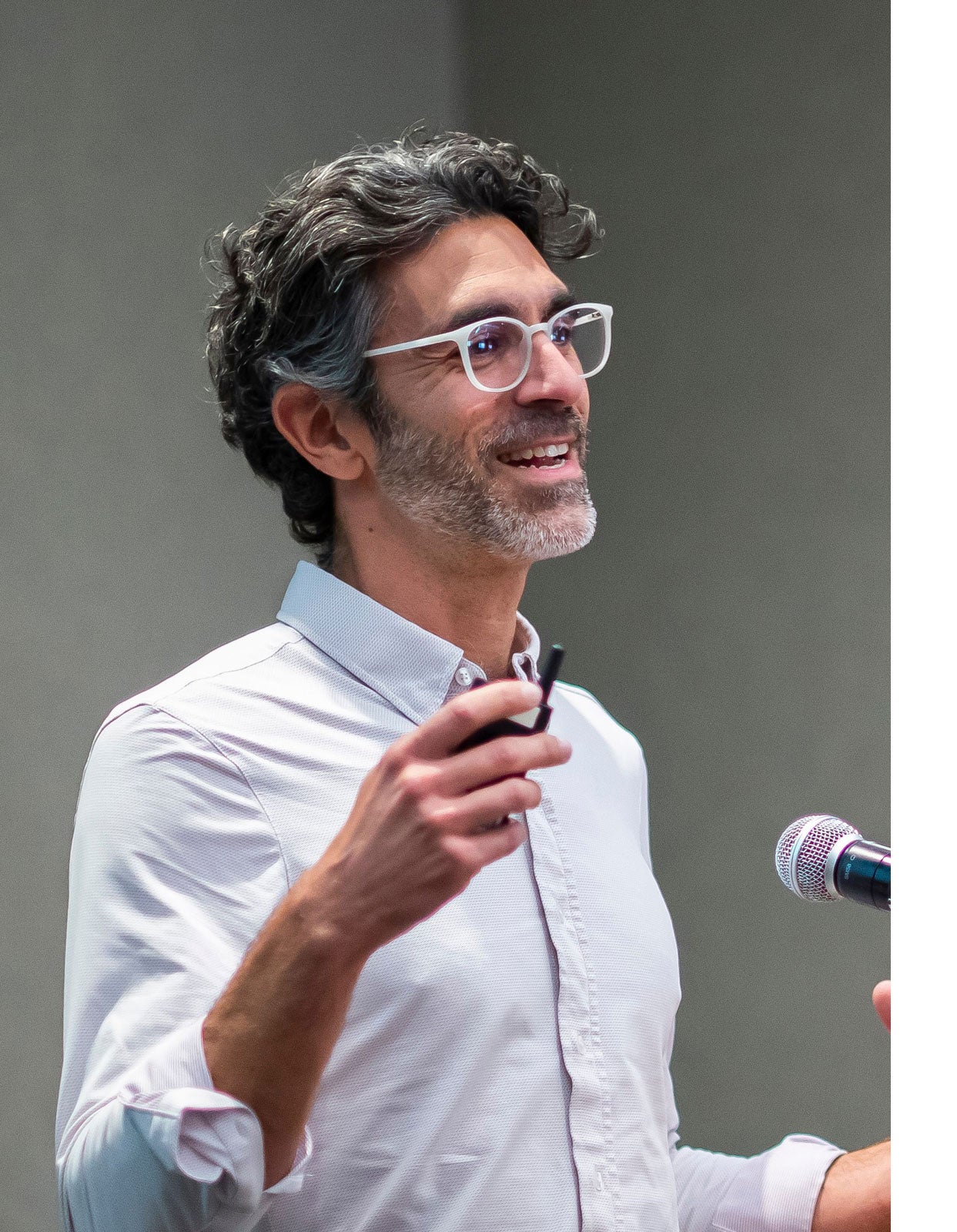Featured Researcher: Ziad Obermeyer

The breadth of Ziad Obermeyer’s work — from emergency room clinician at the Navajo Nation’s Tséhootsooí Medical Center to innovator of machine learning applications for medical decision-making at the University of California, Berkeley — seems vast.
But that “is in some ways a bit of an illusion,” says Obermeyer, who is the Blue Cross of California Distinguished Professor at the University of California, Berkeley School of Public Health and a Chan Zuckerberg Biohub Investigator. “I’m actually extremely narrow. What I’m interested in, and have always been interested in, is medicine. But medicine today has all these components”: biology, economics, psychology, and more. In addition, “the data doctors use every day also involves images, and this is where machine learning has a big role.”
“Medicine as we know it today is multifaceted, and very siloed,” he says, and a regrettable result is that “we have wonderful drugs and technologies, but we have a lot of trouble delivering them to the right people. Our errors aggregate into a healthcare system that costs 20 percent of US GDP and doesn’t deliver what we want it to.”
He is currently targeting one such disconnect between capacity and delivery. About 300,000 Americans die annually of sudden cardiac arrest, and many of those deaths could be prevented by implanting defibrillators in at-risk hearts, Obermeyer says, “but we’re not very good at predicting who needs this.” He and his colleagues have trained an artificial intelligence (AI) system to predict who is at high risk based on a waveform in patients’ electrocardiograms (ECGs), hoping this approach enables more effective deployment of the technology.
He is no Pollyanna about AI’s potential, recognizing that, mishandled, it can do more harm than good. He cites a family of poorly designed algorithms, uncovered by him and his collaborators a few years ago, that were automating and spreading racial bias through a wide range of public and private sector applications.
Obermeyer runs a lab with his frequent coauthor Sendhil Mullainathan that works on healthcare projects blending machine learning, economics, and medicine. He is a research associate at the NBER, where he is affiliated with the Economics of Aging and Economics of Health programs, and has co-organized two NBER conferences on applications of machine learning in healthcare. He is a cofounder of Nightingale Open Science, a nonprofit that makes massive new medical imaging datasets available for research.
Obermeyer was born in Beirut during Lebanon’s civil war. When the kidnappings of Americans began, his American father and Lebanese mother migrated to Cambridge, Massachusetts. He earned undergraduate and medical degrees from Harvard University and a Master of Philosophy in history and philosophy of science from the University of Cambridge, England.
Moving to the West Coast six years ago, Obermeyer and his wife took up surfing. “There’s something I really like about learning a new thing, whatever it is,” he says. “You get better very very rapidly when you’re starting from zero….”


